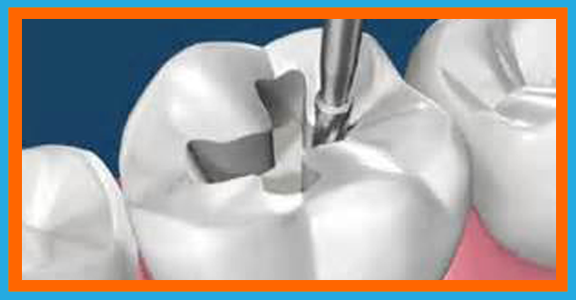Porcelain and Composite Fillings
There are alternative, natural-looking materials to conventional silver-colored fillings – materials made from porcelain and composite resins, which are colored to match natural tooth enamel. Common amalgam alternatives include:
Composite fillings
A composite filling is a tooth-colored plastic and glass mixture used to restore decayed teeth. Composites are also used for cosmetic improvements of the smile by changing the color of the teeth or reshaping disfigured teeth.
As stated, composite fillings are just what the name implies: a mixture of resins and fine particles designed to mimic the color of natural teeth. Composites provide a pleasing aesthetic alternative. Sometimes, composite resins need to be cemented, or bonded to a tooth to allow for better adhesion.
Porcelain (ceramic)
Porcelain fillings and white fillings are virtually undetectable because they can be matched to the color of your natural teeth. They are also functionally superior to metal fillings, and will not become loose, fall out or impact the structure of your tooth.
This material is usually a combination of porcelain, glass powder and ceramic. Candidates for porcelain fillings are typically crowns, veneers and on-lays and inlays. Porcelain is more durable but can become fractured if exposed to prolonged biting pressures.
